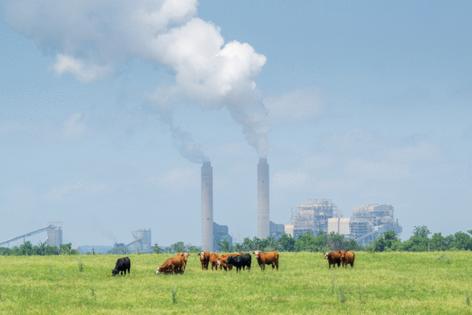Commentary: The wrong way to fight climate change
Published in Op Eds
On a February evening in 2020, a pipeline carrying carbon dioxide (CO2) ruptured in Mississippi. It sent a cloud of asphyxiating gas into the community of Satartia, causing 49 people to be hospitalized with severe respiratory symptoms. First responders had a hard time rescuing people, because the internal combustion engines on ambulances couldn’t operate in air with high concentrations of CO2.
Soon, more communities across the country could face terrifying and potentially deadly accidents like this one.
As the climate crisis worsens, the federal government is investing in expensive, unproven technologies to remove carbon dioxide from the atmosphere instead of simply cutting emissions. These technologies reduce CO2 levels either by removing the compound from the exhaust of burning coal or natural gas in a process called carbon capture and storage, or by extracting it directly from the air in a process called direct air capture.
Once removed, the CO2 has to be shipped or piped somewhere. But it reacts with moisture in the air to form an acid, which can corrode pipelines, tank trunks and railroad tank cars, making them more likely to rupture. After it reaches its destination, the CO2 is often injected into underground wells for storage. These wells can leak, endangering drinking water — and lives — in nearby communities.
The Department of Energy claims these technologies are essential for tackling climate change. But the Intergovernmental Panel on Climate Change, the foremost scientific authority on the subject, says carbon capture and storage is one of the least effective and most expensive emissions reduction methods. The group also warns that direct air capture is “subject to multiple feasibility and sustainability constraints” — and that it could consume the world’s entire current electric generation output.
These technologies also create a number of other environmental, social, technical and economic risks. They serve only to greenwash the fossil fuel industry as it continues business — and emissions — as usual.
And unfortunately, the industry is getting help from the government, which — in spite of the serious risks and questionable benefits — envisions a massive buildout of CO2 transport and storage, multiplying the risks of incidents such as the Satartia leak.
This fall, the Department of Energy issued a request for information seeking input on starting a Carbon Transport Research, Development & Demonstration Consortium, which will coordinate research and development on transportation of CO2 by pipeline, rail, truck, ship and barge.
The process was secretive, restrictive and exclusionary. The notice was published on FedConnect, an online portal for prospective sellers of goods and services to the federal government that requires an account to access. The Department of Energy did not issue a press release or attempt to disseminate the announcement broadly.
The request for information, which closed in early October, avoided the most fundamental questions: Is the large-scale transportation of CO2 even a good idea? And should the federal government be in the business of facilitating it? It says the agency “intends to launch the consortium after reviewing responses,” implying the department has already made up its mind.
The proposed consortium will consist of three standing committees — one for federal agency staff, one for federally funded research institutions and one for representatives of “Non-Governmental Organizations, Industry and Other Subject Matter Experts.” Members of this third committee are required to have at least an undergraduate science or technology degree and experience in the “carbon management infrastructure value chain.”
These requirements and obscure technical jargon shut out input from most members of communities impacted by CO2 transportation — and privilege industry representatives instead.
This is nothing short of a reckless large-scale experiment at the expense of public health, safety and input. We must resist these egregiously irresponsible plans and demand that our government prioritize real climate solutions, not industry greenwashing that puts our communities at risk.
_____
Basav Sen directs the Climate Policy Program at the Institute for Policy Studies. This column was produced for Progressive Perspectives, a project of The Progressive magazine, and distributed by Tribune News Service.
_____
©2024 Tribune Content Agency, LLC.




























































Comments